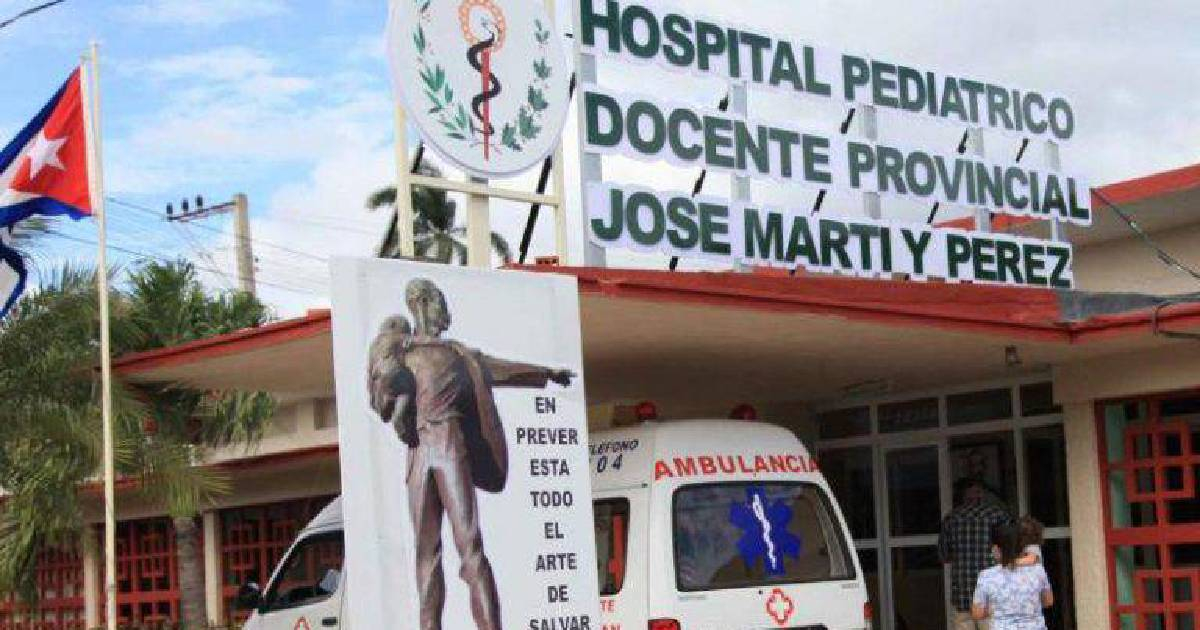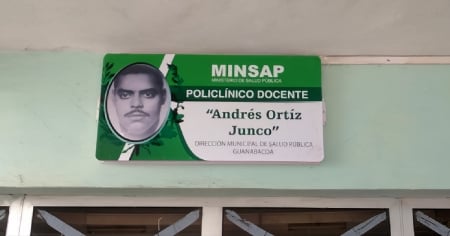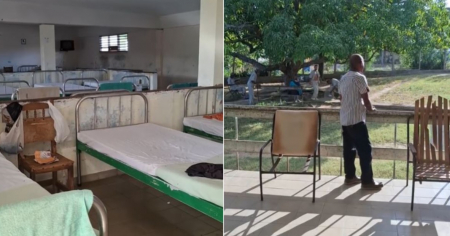
Related videos:
The José Martí Pérez Provincial Teaching Pediatric Hospital in Sancti Spíritus expressed sorrow this Sunday over the death of a infant who was treated in its facilities after being diagnosed with a "life-incompatible condition."
According to the note published on their page on Facebook, the baby's condition was thoroughly discussed by the hospital's medical staff and with the specialists from the relevant National Center.

The diagnosis given to the patient was Methylmalonic Aciduria, a rare metabolic disorder caused by a mutation in the genes responsible for the enzymes methylmalonyl-CoA mutase and methylmalonyl-CoA epimerase, among other genes involved in the synthesis or metabolism of adenosylcobalamin.
According to the explanation, the enzymatic deficiency caused an accumulation of methylmalonyl-CoA, which in turn elevated plasma and urinary concentrations of methylmalonic acid, a key marker of the disease.
The definitive diagnosis was achieved through metabolite studies, somatic complementation, enzymatic analyses, and molecular tests, which confirmed the severity of the disorder.
"The treatment for this disease is costly, as it requires a strict diet free of branched-chain amino acids such as methionine, valine, isoleucine, and threonine, as well as specialized nutritional formulas and the administration of vitamins like cobalamin and L-carnitine. Continuous nutritional monitoring is essential for managing the condition," the statement explains.
It also adds that the prognosis for Methylmalonic Acidemia is severe, particularly in cases that begin in the neonatal period or early on, with a high mortality rate.
Testimony of the mother
In an emotional testimony, the mother of the infant, Ana Paloma, also shared other details about the case on Facebook.
Firstly, he expressed his gratitude to the hospital medical team, highlighting the dedication of the Intensive Care professionals: "Very well, your clarification at the Provincial Pediatric Hospital was very well received by us. Firstly, we thank Doctor Gabriel Alejandro, the nutritionist, and all the doctors and nurses of the Intensive Care unit."
However, the mother also wanted to clarify that, although her baby suffers from Methylmalonic Aciduria, she does not believe the condition is incompatible with life, as there are six similar cases in Cuba, one of them involving a seven-year-old girl and another a four-year-old boy, who lead relatively normal lives with the appropriate treatment.
The mother added that, although the treatment is expensive, a large part of the medications and food for her son were provided by her in-laws.
"I want to clarify that my baby was leading a normally parallel life until January 10, when they decided to experiment on him and administer the pentavalent vaccine without conducting the necessary prior tests or the research recommended by the provincial PAMI and nutritionist doctor Magdalena," she explained.
"In this condition, the children are immunodeficient, and the child's status should have been studied and reevaluated for the application of this vaccine, which was never done," she added.
She also reported the lack of response from Dr. Magdalena Guirado Espinosa, who, according to her, never answered the urgent calls made by the family to inquire about the condition of her son. Additionally, she mentioned that the diet prescribed for her baby was "very poor" compared to that of other children with the same condition. As a result, the mother requested the transfer of the patient to the national specialists Ulises Cabrera and Georgina, with the support of Dr. Gabriel, but the transfer could not be carried out due to the child's deteriorating condition.
"I ask that measures be taken regarding Doctor Magdalena Guirado Espinosa and her expulsion from health services. I have proof of everything I am mentioning," the mother stated, emphasizing her desire to seek justice for her son.
Frequently Asked Questions about Infant Deaths in Sancti Spíritus and the Health Situation in Cuba
What illness did the deceased infant in Sancti Spíritus suffer from?
The infant suffered from Methylmalonic Aciduria, a rare metabolic disorder that causes the accumulation of methylmalonic acid in the body due to enzymatic deficiencies. This disease requires costly and specialized treatment to manage symptoms and improve the patient's quality of life.
What was the mother's criticism of the medical treatment received?
The mother of the infant criticized that, although her son suffered from Methylmalonic Aciduria, the required preliminary tests were not conducted before administering the pentavalent vaccine, considering her baby was immunocompromised. She also reported the lack of response from the responsible doctor and the inadequate diet prescribed for her son.
How does the economic situation in Cuba affect the management of rare diseases?
The economic crisis in Cuba has created significant challenges for the management of rare diseases due to the shortage of medical resources and specialized medications. Families face high costs to obtain the appropriate treatments, and often rely on external assistance to cover the basic needs of the patients.
Are there other cases of alleged medical negligence in Cuba?
Yes, in recent years several cases of alleged medical negligence have been reported in Cuba that resulted in the deaths of children and adults. These allegations include a lack of timely diagnosis, inadequate medical care, and inappropriate medical decisions, reflecting deficiencies in the Cuban public health system.
Filed under:





